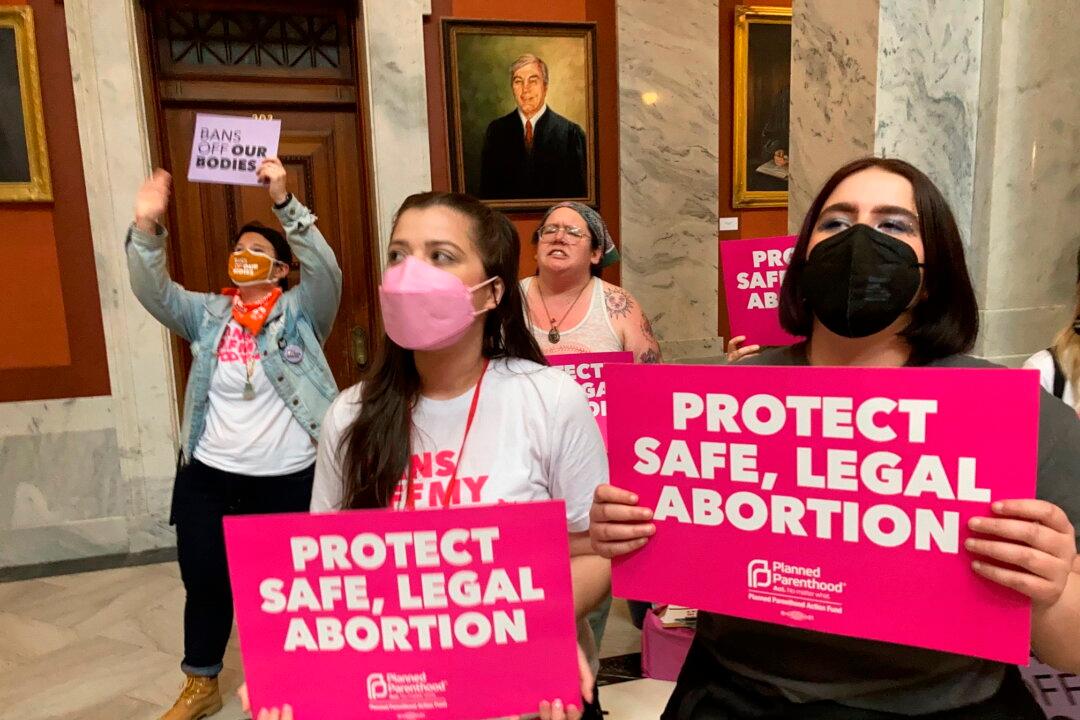Kansas’s “Value Them Both“ amendment goes before Sunflower State voters as a special election on their Aug. 2 primary ballots.
The measure asks voters to remove access to abortion as a right guaranteed under the Kansas Constitution in a 2019 state Supreme Court ruling.
It’s the nation’s first public referendum on abortion since the U.S. Supreme Court overturned its 1973 Roe vs. Wade ruling in a 6–3 June 24 decision and kicked abortion regulation back to the states.
As such, the Kansas “Value Them Both” special election is being intensely watched nationwide; pro and con campaigns have collectively spent more than $13 million, polls are knotted, and election officials predict record turnouts for a midterm primary.
Voters in at least five other states, maybe six, will also see abortion-related ballot measures in 2022, but not until November’s general elections. The six, or perhaps seven, 2022 statewide referendums are the most relating to abortion for a single year in the nation’s history, according to Ballotpedia.
California, Vermont, and Michigan voters will cast ballots this fall on proposed constitutional amendments that would enshrine access to abortion as a right.
As in Kansas on Aug. 2, Montana and Kentucky voters will be presented in November with proposals that curb access to abortion. Sponsors of a proposed restrictive abortion measure in Colorado have until Aug. 8 to garner the needed signatures to qualify.
Abortion-Related Measures in November
Several abortion-related measures will be on November ballots.
California Proposition 1: The proposed “Right to Reproductive Freedom Amendment” was placed on the Nov. 8 ballot by two-thirds votes of both chambers of the state Legislature.
The amendment states that the state can’t “deny or interfere with an individual’s reproductive freedom in their most intimate decisions,” including decisions to have an abortion or to choose or refuse contraceptives.
Vermont Proposal 5: The proposed “Right to Personal Reproductive Autonomy Amendment” was placed on the ballot by state lawmakers.
If adopted, the Vermont Constitution would state that “an individual’s right to personal reproductive autonomy is central to the liberty and dignity to determine one’s own life course.
Michigan “Right to Reproductive Freedom” initiative: The prospective amendment establishes a state constitutional right to reproductive freedom, defined as “the right to make and effectuate decisions about all matters relating to pregnancy, including but not limited to prenatal care, childbirth, postpartum care, contraception, sterilization, abortion care, miscarriage management, and infertility care.”
Sponsored by Reproductive Freedom for All, a coalition that includes the American Civil Liberties Union (ACLU) and Planned Parenthood, the proposed amendment was cleared for signature gathering in March and needed 425,059 signatures by July 11.
Sponsors submitted 753,759 signatures, nearly double the required number, before the deadline, guaranteeing the measure will be on November’s ballot.
The national ACLU and the ACLU of Michigan are among the Reproductive Freedom for All PAC’s top donors. The campaign has received nearly $2 million in donations, according to the Michigan Secretary of State Office.
Citizens to Support MI Women & Children is coordinating opposition to the proposed amendment. By mid-July, it only had about $110,000 in funding, but its campaign was gearing up to challenge “Reproductive Freedom For All.”
Montana LR 131: Another legislatively referred measure placed on the ballot by lawmakers, the proposal asks voters to install in state law a declaration that infants born alive at any stage of development are legal persons.
The proposed “Medical Care Requirements for Born-Alive Infants” measure requires medical care to be provided to infants born alive after an induced labor, cesarean section, attempted abortion, or other procedure.
LR 131 states that “infants born alive at any stage of development are legal persons” and requires “medical care to be provided to infants born alive after an induced labor, cesarean section, attempted abortion, or another method.”




